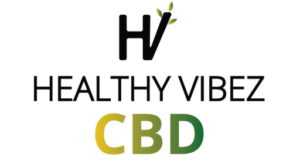Can CBD Cause Headaches?

The CBD (cannabidiol) use has grown immensely over the years as it’s marketed as a remedy for various medical conditions and a source of well-being. CBD compound found in the cannabis plant has multiple benefits, and has become a staple in wellness regimes across the globe.
Companies have switched to creating CBD-infused products such as coffee, bath salts, pet treats, oils, etc. Despite the increasing popularity, it’s crucial to understand how CBD affects our body and possible side effects such as headaches.
So, why does the wellness-supporting cannabinoid cause headaches to some users? Let’s dive in and closely examine how CBD interacts with our bodies to unravel the connection between its use and headaches.
What Is CBD?
CBD is one of the many components of the cannabis Sativa or hemp plant. Another cannabinoid known as Delta-9-tetrahydrocannabinol (THC) is also obtained from Cannabis and can get you high. However, CBD is a non-psychoactive and non-addictive compound with only small THC traces.
Although cannabidiol does have some effect on the brain, it’s different from how THC affects the brain and doesn’t get you high. Reports indicate that it has neuroprotective and anti-inflammatory properties that help maintain the body’s homeostasis.
Studies reveal that CBD effectively reduces depression, anxiety, and insomnia and helps relieve chronic pain. After getting FDA approval, cannabidiol products stormed the mainstream markets and attracted attention. People are going gaga over CBD products, from capsules to CBD-infused bras; you can find it in a wide range of products.
How CBD Affects The Body And Its Health Benefits
As you know, CBD comes from a class of chemicals classified as Cannabinoids. Our body also produces natural cannabinoids, a part of the endocannabinoid system (ECS). The body’s natural mechanism of receptors, enzymes, and endocannabinoids work collectively to maintain the body’s overall functions.
The system administers a variety of physiological processes such as appetite, sleep, mood, and immune response. CBD binds with the ECS receptors and influences the body differently when it enters our body. With continuous interaction with cannabidiol, one may experience the following benefits:
- Reduce Arthritis pain
- Reduce Insomnia and improve sleep quality
- Minimize depression and anxiety
- Help with skin problems such as acne
- Help manage PTSD
- Help suppress seizures
- Help relieve tension in muscles and neck
- Relief pain and inflammation
- Treating neuropsychiatric disorders and epilepsy syndromes.
CBD Risks And Side Effects
Most medications that offer benefits also have specific side effects associated with them. Likewise, even though CBD is a plant-based compound, it has some side effects and may impact consumers differently.
According to a journal published on the side effects of cannabidiol, it may cause dizziness, dry mouth, hypertension, diarrhea, nausea, light-headedness, and psychomotor slowing. The impact of CBD greatly depends on its dosage; hence, consumers must be aware of the right amount and dosage.
Some people also complain about experiencing headaches caused by the consumption of cannabidiol products; however, no study supports such instances. This has led to a significant debate about whether it is the CBD that’s causing the headaches.
Does CBD Oil Causes Headaches?
World Health Organization states no evidence of health problems associated with using pure CBD. Cannabidiol users may associate their headaches incorrectly, as they can be related to several triggers.
Headaches are caused by a change in the brain’s chemical activity or by contraction of the muscles between the head and neck. Several factors may be causing the headache you are experiencing. Let’s have a look at some of these factors:
Lack Of Sleep
Inappropriate sleep cycles leading to insufficient or too much sleep may cause headaches. Once the sleep pattern is normalized, your headache will likely disappear. Consider looking into other factors that cause headaches if it doesn’t.
Stress
Stress is also a common cause of headaches as it triggers tension headaches. If you feel a dull, aching sensation, you feel like pressure from a tight band wrapped around the forehead. You might be experiencing work stress or relationship stress. Whatever it is, take a break from your normal routine to relax, then see how it affects your headache.
Hormonal Changes
Some people experience headaches at a certain period of their menstrual cycle because of the varying estrogen levels. If your menstrual cycle is regular, your health care provider might advise you to take headache medicines such as NSAIDs or triptans a few days before your periods. Then, continue taking it throughout your periods.
Diet
Foods that may trigger headaches include high amounts of tyramine or additives such as processed meat (pepperoni, salami, lunch meat), olives, pickles, nuts, and sure beans (fava, broad, snow peas). Moreover, figs, raisins, avocados, yeast bread, doughnuts, pastries, and cultured dairy products(buttermilk, sour cream, yogurt) can also cause headaches.
Occasional or overconsumption of alcohol or caffeine can also trigger headaches. You might be taking many of the foods mentioned above in your meals; hence, aim for a diet with regular meals. Skipping a meal or overconsuming a particular food or drink can lead to headaches.
Dehydration
It may sound unimportant, but it’s one of the leading causes of headaches often ignored. Your brain contracts from the skull and puts pressure on the nerves, causing headaches when you are dehydrated. Try taking sports drinks, sucking on ice cubes, and avoiding alcohol and caffeine consumption to regain your electrolyte balance.
Why Does CBD Users Complain Of Headache?
CBD is a well-tolerated natural compound with short-lived side effects. However, If you are experiencing headaches or migraines after its use, then there are various steps you can take to eliminate the possible causes.
Consider Quality
The CBD market is unregulated; hence, its quality may vary significantly, affecting one’s experience. Several manufacturers neglect quality to lower costs, leading to lower-quality products. The lower quality products may contain inappropriate levels of cannabinoids and contaminants that can cause undesirable side effects such as headaches. When consuming CBD products, ensure they are free of harmful chemicals and parabens and tested with publicly shared lab reports.
Start Slow
Currently, no research proves the connection between CBD use and headaches, but it’s also true that its response may vary from person to person. The actual question then arises: Can smoking too much CBD cause headaches? The dosage directly influences the body’s response; a large dose may cause side effects such as headaches. For CBD oil, the recommended dosage is between 5 and 10 mg a day; you can increase your dosage until you find what works best for you.
You can start with half a dose of CBD gummies to be comfortable. A well-known query is, Can topical CBD oil causes headaches? CBD balms are relatively safe as they are applied tropically; hence, there is a lesser chance that they alter the chemical activity in the brain, causing headaches. Instead, CBD balms can help release tension around the neck by partnering with receptors and endocannabinoids to relieve headaches or migraines.
Wrong Association
Your headache may be caused by the factors outlined above, but you may be making a wrong association, which is not helping with the relief. For example, if your coffee intake has increased drastically in a few days, but your cannabidiol dose remains unchanged. You may be experiencing headaches because of an increased intake of caffeine.
Measures To Take If You Are Experiencing a Headache After CBD Use
If high CBD strains cause headaches, then try to relax. First, drink water because the headache may be because of dehydration. Next, try meditation, deep breathing exercises, or yoga to help in stress reduction. Moreover, try reducing the dose of cannabidiol and take notes of the triggers and any side effects you may experience.
If the headache continues, consult a healthcare professional for relevant medication and stop using CBD. Try alternative cannabidiol products to analyze how your body reacts to it. Remember, be patient; finding the right product and dosage takes time.
Conclusion
While CBD holds great prospects in the wellness industry its use may be associated with minor side effects such as headaches. Even though more research is needed to recognize the relationship between cannabidiol use and headaches, you can still take some precautions to benefit from it.
To have a safe CBD experience, you can choose high-quality products, stay hydrated, and start with a minimum dose. Many unauthorized sellers have no license to grow, make, and sell cannabis; always look for authorized sources.
Also, check the product’s authenticity by declaring test results to reduce the chance of impurities and chemical contamination. Lastly, always check CBD product labels to know more about the brand and the ingredients used for safe consumption.
